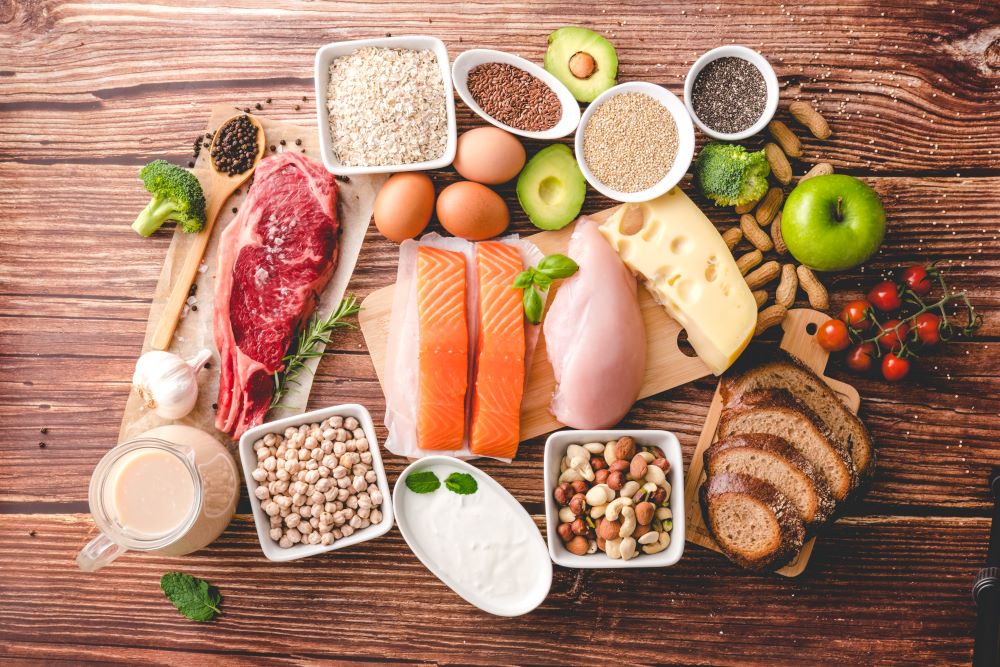Recovery nutrition for marathon training
Marathon training is a demanding process that requires a significant amount of physical and mental energy. In order to perform at their best, runners need to ensure that they are fueling their bodies with the right nutrients and providing enough support for recovery. Proper recovery nutrition is essential for runners who are training for a marathon. It helps to promote muscle repair and growth, prevent injury, and support overall health and wellness.
Good sources of recovery nutrition for marathon training include complex carbohydrates, nutrient-dense fruits and vegetables, lean proteins, healthy fats, and electrolytes. Complex carbohydrates provide sustained energy and help to maintain steady blood sugar levels throughout the day.
Nutrient-dense fruits and vegetables provide vitamins, minerals, antioxidants, and other beneficial compounds that support overall health and help to reduce inflammation. Lean proteins promote muscle repair, growth, and recovery after intense workouts. Healthy fats also provide energy and are essential for many of the body’s metabolic processes. Finally, electrolytes help to keep the body hydrated, which is critical for runners during marathon training.
Importance of Carbohydrates for Recovery
Carbohydrates are an essential nutrient for runners who are training for a marathon, as they provide the body with the energy it needs to perform at its best. After a training session, the body’s glycogen stores are depleted, and it is important to replenish them with carbohydrates. Eating a snack that is rich in carbohydrates within 30 minutes to an hour after training can help to restore energy levels and promote recovery.
Good carbohydrate-rich options for runners include sports drinks, bananas, apples, and granola bars. Runners should aim to consume enough carbohydrates to meet their individual energy needs, which may vary depending on factors such as age, gender, body weight, and level of physical activity.

Importance of Protein for Recovery
Protein is another important nutrient for runners who are training for a marathon, as it plays a crucial role in muscle repair and growth. After a training session, the body’s muscle fibers are damaged, and it is important to provide them with enough protein to promote repair and recovery. Eating a snack that is rich in protein within 30 minutes to an hour after training can help to support muscle recovery and growth.
Good protein-rich options for runners include Greek yogurt, protein bars, and turkey and cheese sandwiches. Runners should aim to consume enough protein to meet their individual protein needs, which may vary depending on factors such as age, gender, body weight, and level of physical activity.
Hydration for Recovery
Hydration is also an important factor for runners who are training for a marathon, as it helps to support recovery and prevent injury. It is essential for runners to drink plenty of water and electrolyte-replacement drinks both before and after training sessions to stay adequately hydrated. Consuming foods that are high in water content, such as fruits and vegetables, can also help to support hydration.
Timing is Key
The timing of recovery nutrition is just as important as the types of food consumed. Consuming a snack within 30 minutes to an hour after training is recommended, as this is when the body is most receptive to absorbing nutrients. This is because during this time the body is in a state of heightened metabolism and blood flow, which helps to transport nutrients to the muscles and promote recovery.
For runners who are training for a marathon, it is recommended to have a pre-planned recovery snack readily available after training, whether it be in a gym bag or at home. This helps to ensure that runners do not miss this critical window of opportunity for recovery nutrition.
Variety is Important
Incorporating a variety of foods into a recovery nutrition plan is also important, as it helps to provide the body with a range of essential nutrients and vitamins. Runners should aim to include a variety of protein sources, such as lean meats, dairy products, and plant-based options, as well as a variety of carbohydrate sources, such as fruits, grains, and starchy vegetables.
It is also recommended to include foods that are high in antioxidants and anti-inflammatory compounds, such as berries, leafy greens, and nuts. These foods can help to support overall health and wellness, reduce the risk of injury, and promote recovery.
In addition to foods, it is also important to include fluids and electrolytes in post-workout recovery nutrition. Water is essential for hydration, but other nutrient-rich beverages such as coconut water, energy drinks, and smoothies can also be beneficial. Electrolytes such as sodium and potassium can help to replenish lost minerals during exercise and reduce muscle cramping.
Finally, a good post-workout recovery meal should provide adequate amounts of protein and fat. Protein helps to rebuild muscle, while healthy fats are important for hormone production and brain health. Examples of protein-rich foods include eggs, fish, poultry, legumes, and dairy products.
Conclusion:
Recovery nutrition is essential for runners who are training for a marathon. Runners should aim to consume enough carbohydrates, protein, and hydration to meet their individual energy and nutrient needs. By incorporating proper recovery nutrition into their training routine, runners can promote muscle repair and growth, prevent injury, and support overall health and wellness. By fueling their bodies with the right nutrients, runners can perform at their best and reach their marathon goals.
[wpchatai]


